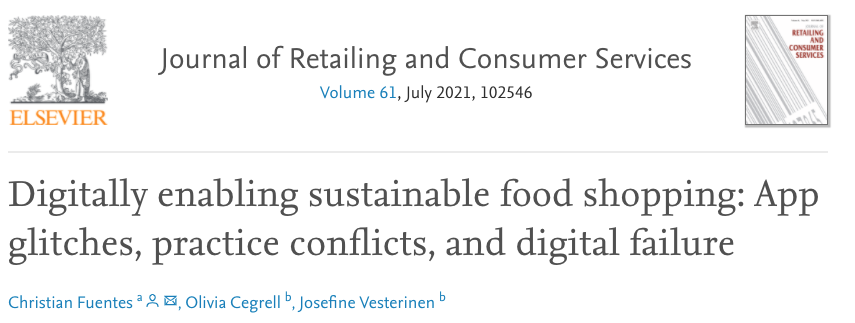Abstract
New digital food platforms are being launched accompanied with the promise of also promoting more sustainable food consumption. However, despite some success, many of these efforts to digitally reconfigure consumers food practices fail. The aim of this paper is to empirically explore, conceptualize and explain such failures. Taking a practice theory approach, and drawing on a field experiment using the Karma app – an anti-food waste app – the paper shows that the inability of this app to promote a new way of acquiring food is due to glitches – app failures of different sorts – but also practice conflicts. Two types of practice conflicts, practice mismatch and practice competition, make the fostering of a new sustainable food provisioning practice difficult.
Find it here!

